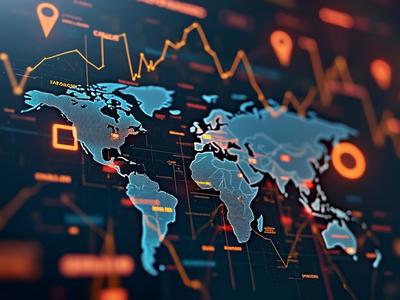
Macron Advocates for EU-Asia Alliance at Shangri-La Dialogue
French President Emmanuel Macron emphasizes collaboration among nations in response to global security challenges during a key defense summit in Singapore.
French President Emmanuel Macron addressed the Shangri-La Dialogue in Singapore on June 2, 2023, advocating for strengthened alliances between European and Asian nations in the face of escalating global tensions and the perceived threat from major powers, particularly China and Russia.
In his keynote speech, Macron referred to the geopolitical landscape as dominated by 'spheres of coercion,' invoking concerns about China’s military assertiveness in the South China Sea and Russia’s ongoing aggression in Ukraine.
Macron characterized these powers as revisionist countries attempting to project dominance across regions, from Eastern Europe to Asia, emphasizing that their actions threaten the sovereignty and stability of nations caught in the middle.
He stated, "Countries that want to control areas from the fringes of Europe to the archipelagos in the South China Sea… appropriating resources for their benefit."
His remarks came at a time when tensions between the United States and China are palpable, further complicating regional diplomatic relations.
During a recent diplomatic tour of Indonesia, Vietnam, and Singapore, Macron positioned France as a strategic partner in both defense and commerce, aiming to fill the void left by the competing interests of Washington and Beijing.
Macron underscored the need for a collaborative European-Asian alliance built on shared principles, pointing out that global imbalances created by superpower conflicts should not render smaller nations as collateral damage.
He warned that complacency regarding Ukraine could have dire implications for Taiwan and other vulnerable regions.
His comments were echoed by leaders from regional democracies such as Australia, Japan, and South Korea, which have publicly supported Ukraine despite close ties to China.
In stressing the EU’s commitment to a rules-based international order amid rising Chinese territorial claims, Macron noted how the EU has increasingly engaged in freedom of navigation exercises to counter China’s military assertiveness in regional waters.
In discussions with Singapore Prime Minister Martin Wong, he articulated the EU's desire to engage with both the US and China without becoming dependent on either, a sentiment similarly echoed by Wong, who advocated for comprehensive engagement and mutually beneficial arrangements.
The Shangri-La Dialogue, an annual security summit initiated in 2002, serves as a significant platform for high-level discussions among defense ministers from around the world.
This year's event proceeds without a high-level representative from China, which has drawn attention as potential indicators of the current state of US-China relations.
Leaders in the region have expressed concerns regarding US strategic commitments, particularly after Donald Trump assumed office in early 2023. Trump's trade policies, characterized by significant tariffs on Chinese goods, alongside uncertainties surrounding US defense commitments towards Taiwan, have left regional allies apprehensive.
US Secretary of Defense Pete Hegseth emphasized the US's objective to maintain a strong presence without seeking conflict, highlighting the country's readiness to engage in the Indo-Pacific region.
During this three-day dialogue, other pressing security issues are set to be discussed, including the civil unrest in Myanmar, recent clashes between Thailand and Cambodia, and the ongoing tensions between India and Pakistan in the contested region of Kashmir, where a declared ceasefire has followed a series of grave military confrontations.
Both India and Pakistan opted to send military delegates instead of defense ministers, with no formal meetings scheduled between their representatives at the conference.
In his keynote speech, Macron referred to the geopolitical landscape as dominated by 'spheres of coercion,' invoking concerns about China’s military assertiveness in the South China Sea and Russia’s ongoing aggression in Ukraine.
Macron characterized these powers as revisionist countries attempting to project dominance across regions, from Eastern Europe to Asia, emphasizing that their actions threaten the sovereignty and stability of nations caught in the middle.
He stated, "Countries that want to control areas from the fringes of Europe to the archipelagos in the South China Sea… appropriating resources for their benefit."
His remarks came at a time when tensions between the United States and China are palpable, further complicating regional diplomatic relations.
During a recent diplomatic tour of Indonesia, Vietnam, and Singapore, Macron positioned France as a strategic partner in both defense and commerce, aiming to fill the void left by the competing interests of Washington and Beijing.
Macron underscored the need for a collaborative European-Asian alliance built on shared principles, pointing out that global imbalances created by superpower conflicts should not render smaller nations as collateral damage.
He warned that complacency regarding Ukraine could have dire implications for Taiwan and other vulnerable regions.
His comments were echoed by leaders from regional democracies such as Australia, Japan, and South Korea, which have publicly supported Ukraine despite close ties to China.
In stressing the EU’s commitment to a rules-based international order amid rising Chinese territorial claims, Macron noted how the EU has increasingly engaged in freedom of navigation exercises to counter China’s military assertiveness in regional waters.
In discussions with Singapore Prime Minister Martin Wong, he articulated the EU's desire to engage with both the US and China without becoming dependent on either, a sentiment similarly echoed by Wong, who advocated for comprehensive engagement and mutually beneficial arrangements.
The Shangri-La Dialogue, an annual security summit initiated in 2002, serves as a significant platform for high-level discussions among defense ministers from around the world.
This year's event proceeds without a high-level representative from China, which has drawn attention as potential indicators of the current state of US-China relations.
Leaders in the region have expressed concerns regarding US strategic commitments, particularly after Donald Trump assumed office in early 2023. Trump's trade policies, characterized by significant tariffs on Chinese goods, alongside uncertainties surrounding US defense commitments towards Taiwan, have left regional allies apprehensive.
US Secretary of Defense Pete Hegseth emphasized the US's objective to maintain a strong presence without seeking conflict, highlighting the country's readiness to engage in the Indo-Pacific region.
During this three-day dialogue, other pressing security issues are set to be discussed, including the civil unrest in Myanmar, recent clashes between Thailand and Cambodia, and the ongoing tensions between India and Pakistan in the contested region of Kashmir, where a declared ceasefire has followed a series of grave military confrontations.
Both India and Pakistan opted to send military delegates instead of defense ministers, with no formal meetings scheduled between their representatives at the conference.











